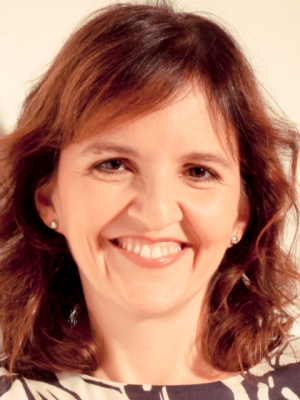Prof. Dr. Laura De Lorenzis

Prof. Dr. Laura De Lorenzis
Full Professor at the Department of Mechanical and Process Engineering
Additional information
Research area
Prof. De Lorenzis and her group develop mathematical models and computational methods and perform experiments to observe, describe and predict complex phenomena involving the mechanics of solid materials.
i. We search for simple, but not too simple, mathematical models to describe and predict interesting physical phenomena in which the mechanics of solid materials plays an important role. We especially focus on the broad category of phase-field models; we develop new such models to describe damage, fracture and fatigue, as well as phase transformations and chemical reactions coupled with mechanics. Applications span a wide range, from energy (e.g. fracture in batteries) to medicine (e.g. fracture in bones), from additive manufacturing (e.g. phase transformations in laser powder bed fusion) to carbon capture (e.g. microbiologically induced calcite precipitation).
ii. These models, and many others, are described by partial differential equations which in general do not have closed-form solutions. Thus, we seek accurate and efficient computational methods for their approximate solution. One of the present goals is to deal with extreme deformations in materials with complex (history-dependent) behavior, e.g. to simulate bioprinting or extrusion-based additive manufacturing. Another objective is to achieve unprecedented computational speed by developing brand new approaches (e.g. new lattice Boltzmann methods for solid mechanics), also exploiting machine learning tools (see the next item).
iii. As in many other fields, machine learning tools bear an enormous transformative potential also in computational solid mechanics. We are exploring this potential in two main directions: on one hand, we are developing a new approach for automated discovery of material models based on data. The vision is, given a specimen of unknown material of arbitrary complexity (be it of biological or man-made nature) and based on realistically measurable data, to fully automatically discover the best mathematical model to describe its behavior, i.e. the model which features the best compromise between accuracy and simplicity. On the other hand, we are looking for a new generation of computational approaches with unprecedented speed, ultimately able to deliver predictions which are fast enough for optimization and control – ideally, real-time predictions.
iv. Through modeling and computations we are able to perform a large number of virtual experiments. But real experiments are the only way to assess the accuracy of the virtual predictions. To this end, our laboratory is equipped with X-ray tomography, which enables us to look inside a wide range of materials to high resolution in 3D, also under loading, and record and monitor the full displacement field through digital volume correlation. Further equipment includes more classical mechanical testing machines with digital image correlation, 3D printers and numerous measurement devices.
Laura De Lorenzis received her Engineering degree and her PhD from the University of her hometown Lecce, in southern Italy, where she first stayed as Assistant and later as Associate Professor of Solid and structural mechanics. In 2013 she moved to the TU Braunschweig, Germany, as Professor and Director of the Institute of Applied Mechanics. There she was founding member and Chair (2017-2020) of the Center for Mechanics, Uncertainty and Simulation in Engineering. Since 2020 she is Professor of Computational Mechanics at the ETH Zürich. She was visiting scholar in several renowned institutions, including Chalmers University of Technology, the Hong Kong Polytechnic University, the Massachusetts Institute of Technology (as Fulbright Fellow), the Leibniz University of Hannover (as Alexander von Humboldt Fellow), the University of Texas at Austin and the University of Cape Town. She is the recipient of several awards, including the RILEM L’Hermite Medal 2011, the AIMETA Junior Prize 2011, the IIFC Young Investigator Award 2012, two best paper awards, two student teaching prizes at the TU Braunschweig, a European Research Council Starting Researcher Grant in 2011, the election to Solid Mechanics Fellow of the European Mechanics Society (EUROMECH) in 2022 ("in recognition of her outstanding and influential contributions to computational solid mechanics including in particular phase-field approaches to fracture and fatigue, variational collocation methods, and data-driven mechanics"), and the election to Fellow of the International Association for Computational Mechanics (IACM) in 2024. She authored or co-authored more than 160 papers on international journals, delivered over 30 plenary lectures at international conferences and is editorial board member or associate editor of over 15 international journals. Since 2023 she is Editor of Computer Methods in Applied Mechanics and Engineering.
Course Catalogue
Autumn Semester 2025
| Number | Unit |
|---|---|
| 151-0079-30L | Swissloop |
| 151-0533-00L | Introduction to Computing |